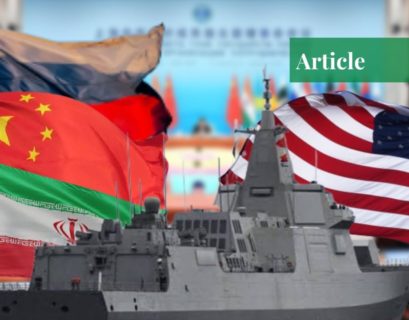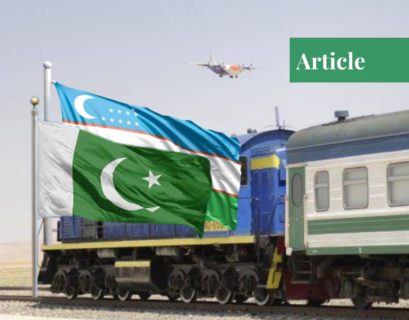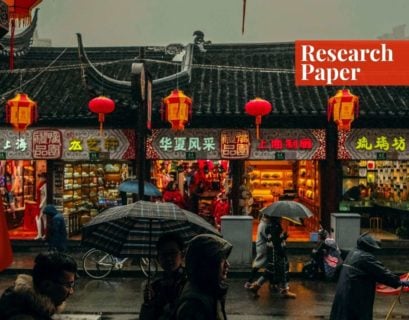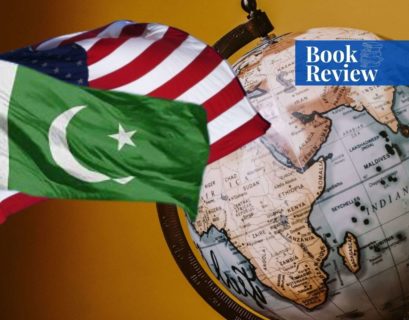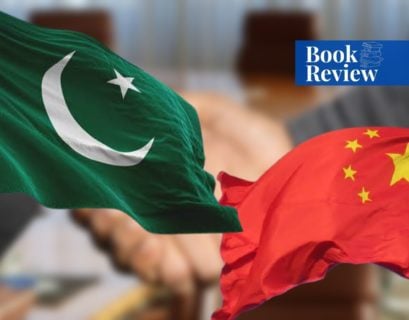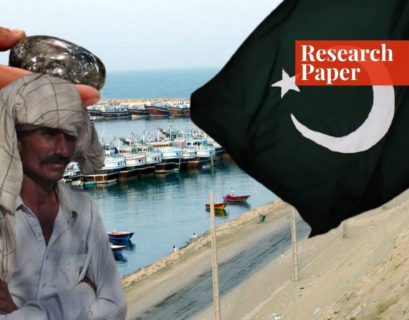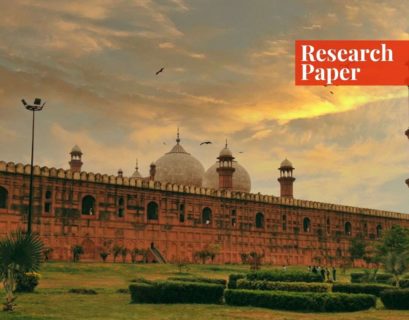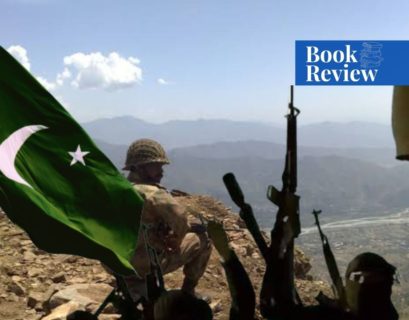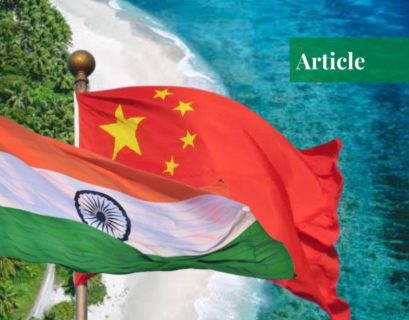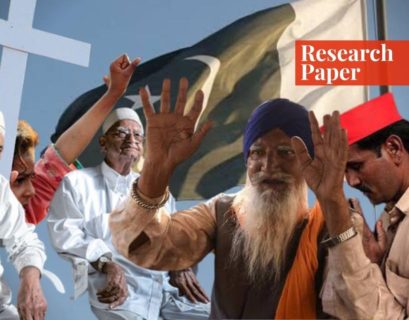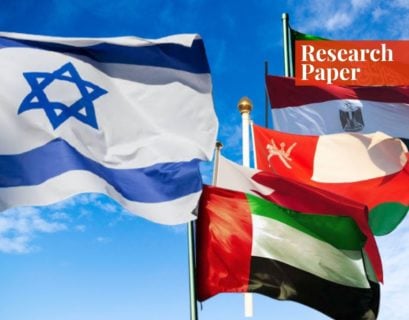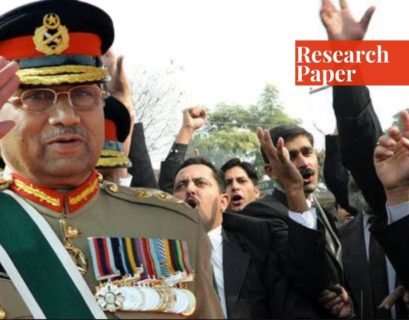Joint Naval Exercise CHIRU-2Q22 in the Indian Ocean: Indication of an Eastern Axis?
The author, Syed Haris Shah, explains the reality from the perspectives of China, Iran, and Russia. Already a part of the Shanghai Cooperation Organisation (SCO), these three Eastern states have been repeatedly partnering in joint naval exercises to maintain maritime security in their waters against the United States.
The Trans-Afghan Railway: Connecting Pakistan & Uzbekistan
Culturally, historically, and religiously, Pakistan and Uzbekistan are tied together. Yet, since the two states became independent, they have not been able to establish strong bilateral relations. However, under the leadership of Uzbekistan’s President Shavkat Mirziyoyev and Pakistan’s Prime Minister Imran Khan, new prospects for trade and cooperation have opened up. The author, Zohra Asif, notes that the Trans-Afghan Railway – a 573-kilometer corridor connecting Uzbekistan, Afghanistan, and Pakistan – serves as one such opportunity. She argues that the project will not only link Central and South Asia but also create room for peace in Afghanistan through economic development.
The Demographic Transition Model in China
Transition in the economic growth of countries takes place when they shift from a high, uncontrolled population to a low and balanced population. The same is the case of China which shifted from low prosperity, high child mortality, and high fertility to a state of high prosperity, low child mortality and low fertility. The author, Arfah Zia, dwells on the impact of the demographic transition on China. She draws attention to how this transition has proven successful for economic growth and, at the same time, discusses how it has become distressing for China’s population size.
The Leverage Paradox: Pakistan and the United States
Robert M. Hathaway’s “The Leverage Paradox: Pakistan and the United States” gives a very unique picture of the relationship between Pakistan and the United States. After a careful perusal of the events, he concludes, contrary to public opinion, that it was not the United States but Pakistan that has had an upper hand.
China-Pakistan Axis: Asia’s New Geopolitics
Andrew Small’s “China-Pakistan Axis: Asia’s New Geopolitics” describes the relations between the two Asian states. The book is an in-depth analysis of the impact of geographical factors on the past and present ties between China and Pakistan. Through his extensive research, Andrew Small has explained how this relationship is one of mutual benefit, and both of the countries involved have put themselves and their defense ahead of everything else.
Foreign Intervention in Balochistan and its Implications for Pakistan
Balochistan’s geostrategic location has captured the attention of all the neighboring countries. Not only has its rich resource abundance and strategic location interested China but Pakistan’s adversaries like US and India have also been actively participating in causing insurgencies in Balochistan to hamper its development. Along with the multifaceted role of the international actors, the indigenous nationalist movements within Balochistan and their increasing relationship with similar ethnicities across the border have also caused serious consequences for Pakistan. The author, Iman Mujahid, highlights how Balochistan has been a symbol of global political exploitation by international actors and how their attempt to intervene in the region has contributed to the existing ball game.
Can Pakistan’s Tourism Exceed the Maldives’?
Pakistan is striving to develop maritime tourism to broadcast its image as a tourist-friendly country and to prosper economically. The authors, Akseer Ali Saif Janjua, Sarah Kiyani, Saliha Waseem, and Saqib Ameen, explore the country’s tourism potential, and the development carried out in the sector by comparing it to the Republic of Maldives—a country which was once considered unsuitable for tourism but is now one of the world’s top tourist destinations.
A Book Review of Pakistan Under Siege
Madiha Afzal’s “Pakistan under Siege” explores extremism, terrorism, and the narratives of the state in Pakistan. She notes how religious radicalism has strongly influenced the political actors in the country. The author also offers an incisive view of the actors’ deep-rooted relationships with terrorism.
An Analysis of the National Health Vision Pakistan (2016-2025)
The Covid-19 pandemic revealed the inadequacy of the health infrastructure in Pakistan. In Pakistan’s case, after the 18th amendment, provinces were given the right to devise health policies. The public sector is inadequately staffed and has below-average job satisfaction and work environment. The authors discuss Pakistan’s National Health Vision (2016-2025) and compare it with Bangladesh’s health policies.
The Strategic Importance of the Indian Ocean to China and India
The changing dynamics of global politics has pushed the Indian Ocean region into the limelight, and so the author, Allah Nawaz, examines the strategic policies and alliances of China and India. Although both China and India have a huge disparity in conventional and non-conventional capabilities, the US and Israel’s role in making India a regional power has intensified Indo-China relations.
Animal Farm by George Orwell (Book Review)
George Orwell’s “Animal Farm” is a symbolic representation of the pre and post-revolution Soviet Union. Through the characters of the book, Orwell has aptly captured the corruption, propaganda, and power politics that exist in human society. He depicts how even after the Russian Revolution, the cycle of exploitation continued – only the actors had changed.
The Religious Minorities of Pakistan: An Uncertain Future
The author, Ali Hassan, underscores how Pakistan has treated its religious minorities over the years. He explores the reasons for minority injustice and the steps that have been taken to fill this lacuna. He finally concludes that unless existing social and legal structures are challenged, minorities in Pakistan will never be equal to Muslim majority citizens.
Iran: A Common Enemy of Israel and the Arab Countries
The relations of the Arab states, namely Saudi Arabia, the UAE, Bahrain, Egypt, and Oman, with Israel have always been based upon what they perceive as a threat and what benefits them. The authors, Rubab Nawaz and Kanza Tahir, explain that initially, these Arab states viewed Israel as the enemy but now, they’ve started to align themselves with it to counter the threat of a Shi’ite and nuclear Iran. This threat has been securitized to gain legitimacy from the masses. For the sake of this Arab-Israel alliance, the Gulf states seem to have sidelined the issue of Palestine.
Re-examining Pakistan’s NFC Awards
Pakistan has introduced seven National Finance Commission (NFC) awards for the distribution of revenue between the center and provinces since 1975. The author, Mohammad Ali Zafar, argues that while the 7th NFC Award has increased the share of the provinces in the divisible pool, it has also raised concerns for the center, especially when it comes to debt servicing and defense. Moreover, since the provinces of Pakistan have been, somewhat, unable to generate provincial revenues as per their capacity, they have remained financially dependent on the center.
